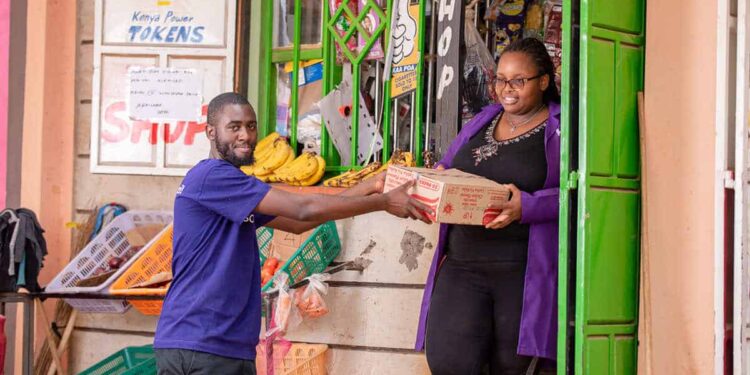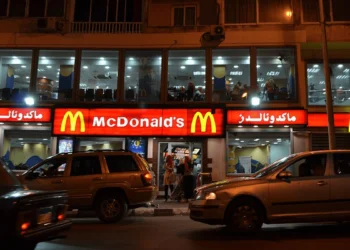Nairobi-based B2B company that connects informal retailers to manufacturers, Sokowatch, has raised $125 million in Series B funding from Tiger Global and Avenir as it rebrands to Wasoko. The company valuation increased to $625 million.
Founder and CEO Daniel Yu launched Sokowatch in Kenya in 2015 as an asset-light platform and a marketplace for distributing fast-moving consumer goods from suppliers to retailers. The model wasn’t efficient because Sokowatch couldn’t guarantee that the goods were delivered to the customer when they made orders.
Yu said, “We realized that to deliver the quality of service these shops deserved, we needed to get more involved,” resume “In managing the operations directly ourselves … we went from an asset-light backend distribution software platform to this market-facing platform that was out there delivering goods directly to shops themselves.”.
Sokowatch was full-scale asset-heavy, owning and leasing facilities in its distribution chain from warehousing to logistics. And what started in Kenya soon scaled into neighboring East African markets Tanzania, Rwanda, and Uganda in 2018.
Yu believes Sokowatch is now ready for a rebrand as it enters its next growth phase — moving from an East African player to a pan-African one. While the company was due for a rebrand, Yu said it was still figuring out operations in this new integrated model. However, the recent entry into Ivory Coast and Senegal forced its hand.
Yu commented, “Sokowatch started as this kind of backend brand. We wanted a brand that could be more front and center for the African retailer and easily pronounced across all markets while reflecting our East African roots. So that’s why we’ve rebranded now to Wasoko, meaning ‘people of the market.”.
Wasoko offers an excellent service for its clients by allowing retailers from Kenya, Tanzania, Rwanda, Uganda, Ivory Coast, and Senegal to order products from suppliers via SMS or its mobile app for same-day delivery to their stores and shops via a network of logistics drivers.
It also offers a buy now, pay later option for retailers who need working capital to order more goods; these options are the latest trend for B2B retail and e-commerce companies. They see it as a sticky option in an otherwise volatile space where retailers aren’t committed to one player, given non-differential offerings.
TradeDepot and MarketForce raised impressive rounds with significant debt components to provide working capital to these retailers. Still, instead of that, Wasoko is financing its BNPL option from its balance sheet.
MarketForce is an asset-light platform in Kenya, Nigeria, Uganda, Tanzania, and Rwanda. TradeDepot, on the other hand, operates an asset-heavy model across Nigeria, Ghana, and South Africa; as we notice, what they have in common is their presence in Nigeria, which is considered the largest market for informal retail in Africa.
Yu said, “We do buy now, pay later to our merchants, and it’s a significant part of our business. But we’ve been able to do that independently without raising any separate debt facilities. But we’re looking at debt financing options”.
Yu was asked why Sokowatch has expanded into other West African markets other than Nigeria; he answered, “Our choice to expand to the Francophone West African markets, I think, reflects the strong growth that those countries have exhibited in the region overall. If you look at the past ten years, both Senegal and Cote d’Ivoire have experienced solid year-on-year GDP growth”.
Resume “Whereas you look at a market like Nigeria, the reality is that growth has been volatile and, in some years, negative. And on top of that, you have a lot of challenges in Nigeria’s macro-environment when it comes to the economy, currency and regulations.”.
Commenting on the Informal retail across any African market that is considered an untapped opportunity that gives any first-mover serious advantage, Yu said, “Any market that we look at is going to have a huge demand for our services. And of course, the supply chains in these other markets are even less organized, less established, and therefore more fragmented with more inefficiencies”.
Resume “We see an opportunity to take our model to be truly effective across Africa and expect that we’ll be able to leverage our existing experience in our playbook for successfully launching and scaling our services now in six countries across the continent.”.
Wasoko has delivered 2.5 million orders to more than 50,000 active retail customers in its network since launching.
The company said its revenue has grown over 500% in the past year and 1,000% since 2019. TechCrunch also learned that the African B2B e-commerce platform is processing $300 million in ARR/GMV across more than 150,000 monthly orders.
The round of funding was good news for both employees and early backers who took a bet on Wasoko years ago as new investors Tiger Global and Avenir Growth Capital lead its Series B round (the pair also co-led Flutterwave’s Series C investment last March), as Wasoko’s 800 employees are shareholders of the company through its universal employee equity policy.
When asked about the similarities between his and Flutterwave’s round, Yu said, “It was strategic. We’ve shared investors with Flutterwave since the early days; 4DX Ventures, for example, was an early investor in both Flutterwave and us,”.
Resume “When it came to raising this round, I think being able to follow in their footsteps by working with these great global investors who had seen the great return that Flutterwave had brought them, I think helped smooth path for us as we reached the stage in our growth as well.”.
This is the 10th deal and first outside fintech since re-entering Africa’s tech market in 2021 for Tiger Global; Wasoko is also its second e-commerce investment on the continent after leading Takealot’s $100 million in 2014 (Wasoko is B2B e-commerce, while Takealot is B2C) as it’s the third African investment for Avenir Growth Capital following its checks in Flutterwave and Carry1st.
Coming two years after it closed a $14 million Series A, Wasoko’s round welcomed participation from VNV Global; Binny Bansal, co-founder of Flipkart; and Sujeet Kumar, co-founder of Udaan; Quona Capital; 4DX Ventures; and JAM Fund.
Kumar, who has years of experience running Udaan (the largest B2B retail e-commerce company globally), joins Wasoko’s board of directors. This is the second-largest non-fintech round in Africa after Andela and most significant in the B2B retail e-commerce space with big names such as Egypt’s MaxAB and Kenya’s Twiga.
The new investment that values the company at $625 million will allow Wasoko further drive geographic expansion and product growth across the continent.
The company said it is exploring expansion into the West African nation and Southern Africa while consolidating its position across its six current markets; it will also hire new employees and expand its product offerings to point-of-sale merchant systems, bill payments, and social commerce verticals it might build in-house or back and acquire companies that provide such services.












